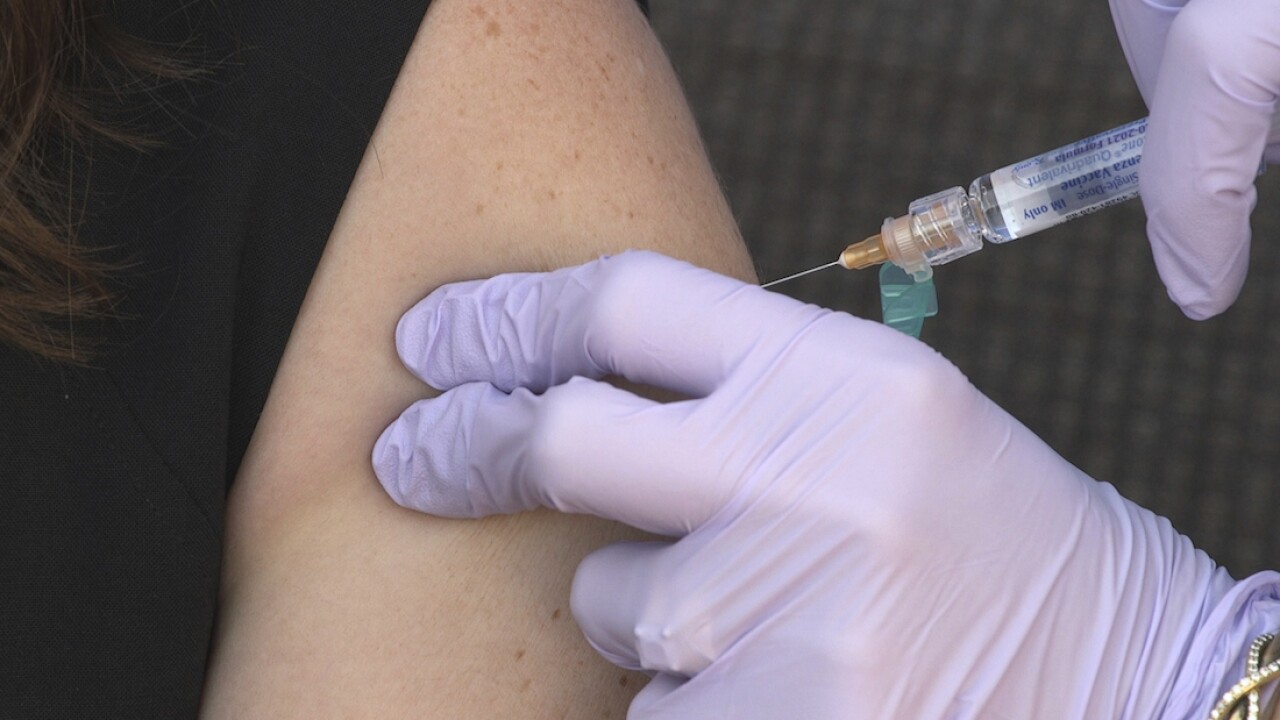KANSAS CITY, Mo — More workers who are unvaccinated will now be required to get the COVID-19 vaccine by January 4.
The U.S. Department of Labor’s Occupational Safety and Health Administration released a new rule on Thursday that would force employees in private companies to get vaccinated or face weekly testing.
The federal vaccine mandate applies to all private-sector companies with 100 or more employees, including both full-time and part-time workers. The rule would not apply to people who work remotely.
Employees who choose to forgo the vaccine will be required to wear a mask indoors or while riding in a vehicle with colleagues beginning Dec. 5.
In the wake of the decision, many are questioning the legality of such a rule.
“There is no right of an individual to refuse a vaccine. So a mandate in general doesn’t violate individual liberty at least under current law,” Richard Levy, a distinguished professor of constitutional law at the University of Kansas, said.
Levy said it is not a simple answer to determine if the Biden Administration’s recent move was legal. It starts with a more than 100 year-old case: Jacobson vs. Massachusetts.
“Early part of the 20th century involving smallpox vaccines, where the Supreme Court held that the state had the right to impose a vaccine mandate,” Levy said. “Unless the court is willing to revisit that precedent and overturn it, the general claim that there is no authority in government to mandate vaccines would likely fail.”
But, this does not mean there are no constitutional objections that could be raised. For example, religious liberty.
“Either the Free Exercise clause of the First Amendment or a federal statute called the Religious Freedom Restoration Act might limit the authority of the Biden Administration to mandate the vaccines if they don’t include a religious exemption,” Levy said.
Along with religious exemptions, there is a question of statutory authority: whether the Biden Administration had the authority to actually impose the mandate.
“The Biden Administration doesn’t have the inherent presidential power to issue that sort of order. Any order would have to be derived from a statue that provides authority,” Levy said.
The statute that authorized the recent mandate was the Occupational Safety and Health Administration, commonly called OSHA. It is issued during what is called an “Emergency Temporary Standard” and cited “grave danger” in its need to protect workers from COVID-19.
“A challenge to the order might argue that there is no grave threat, so the statute doesn’t authorize the issuance of the order in this case,” Levy said. “It would depend on whether the Biden Administration can document grave danger and the necessity for vaccines.”
Companies that do not follow the mandate may face fines, but they could have the opportunity to appeal those.
“There’s a process through which the Occupational and Safety and Health Administration will determine that there is a violation," Levy said. "Then there is an administrative proceeding for, I believe, its fines that would be imposed or considered by another body called Occupational and Safety and Health Review Commission."





